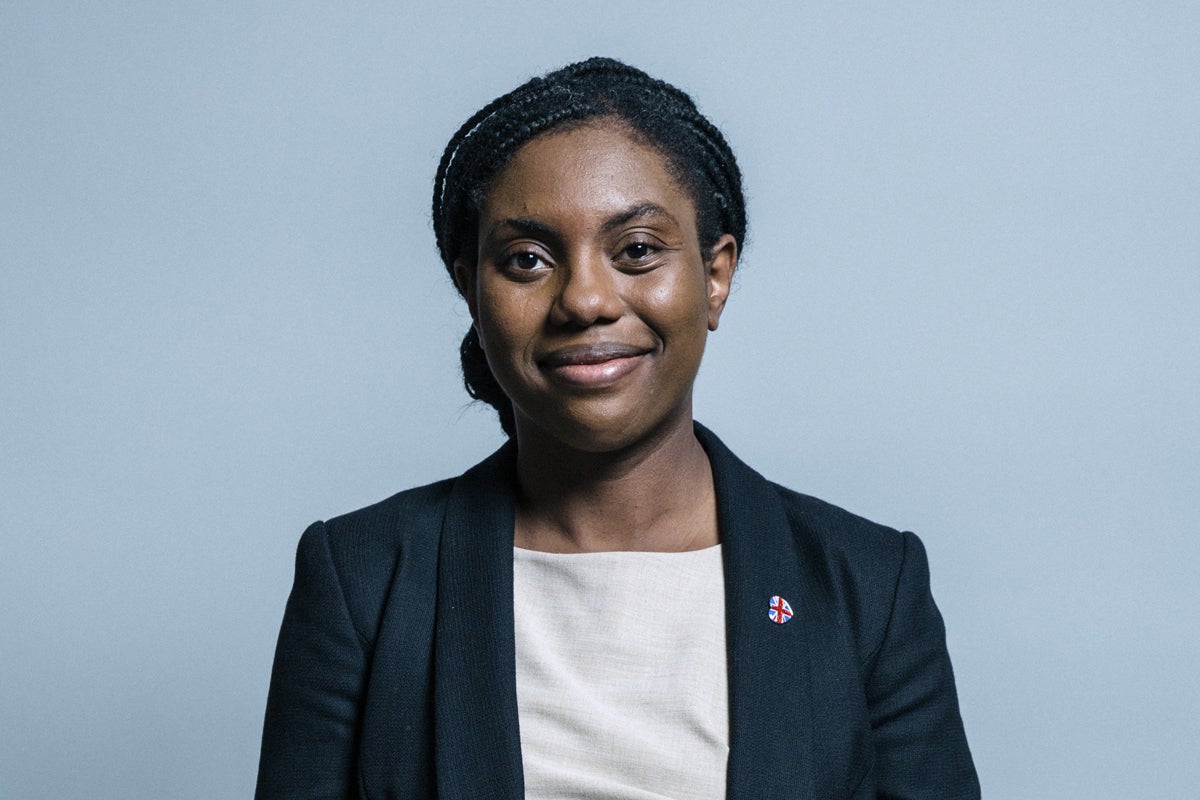The Independent's journalism is supported by our readers. When you purchase through links on our site, we may earn commission.
The government has no intention of taking racism seriously – and it is using MPs of colour to avoid criticism
A debate in the House of Commons about Critical Race Theory has again exposed the Conservative Party’s agenda of weaponising racism against Britain’s ethnic minority population


Your support helps us to tell the story
From reproductive rights to climate change to Big Tech, The Independent is on the ground when the story is developing. Whether it's investigating the financials of Elon Musk's pro-Trump PAC or producing our latest documentary, 'The A Word', which shines a light on the American women fighting for reproductive rights, we know how important it is to parse out the facts from the messaging.
At such a critical moment in US history, we need reporters on the ground. Your donation allows us to keep sending journalists to speak to both sides of the story.
The Independent is trusted by Americans across the entire political spectrum. And unlike many other quality news outlets, we choose not to lock Americans out of our reporting and analysis with paywalls. We believe quality journalism should be available to everyone, paid for by those who can afford it.
Your support makes all the difference.If there’s one defining aspect of Boris Johnson’s leadership, it is his refusal to take responsibility for anything he or his government has done.
We know how it goes: mess up, point the finger, hope the story falls off the agenda… repeat. In some cases, those transparent tactics have been challenged successfully. But in one area in particular, the vigour with which the government has defended its own inaction seems to be escalating. I’m talking here about its attitude to race.
In what seems like an attempt to accelerate the Conservative’s agenda of changing the “narrative” surrounding racism and weaponising it against Britain’s ethnic minority population, the government has gone further than Johnson’s claims earlier this year that a sense of misguided “victimisation” is more of an issue than discrimination. During Labour’s Black History Month debate in parliament on Tuesday, the subject of “Critical Race Theory” (CRT) became a part of the government’s arsenal.
Tory MPs argued against pushes to overhaul or “decolonise” the curriculum in favour of the introduction of a more comprehensive representation of black history. CRT, a school of thought with origins in US law studies, was roundly criticised and simplified as a barrier to this being a country based on “merit and character”, as Andrew Lewer, Conservative MP for Northampton South, put it. But what does it actually mean?
CRT originated in the US, through scholars like Derrick Bell who used the term to explore the prevalence and impact of structural racism, ie how racism and white supremacy have rooted themselves in all aspects of American society. As Birkbeck University department of law lecturer Dr Kojo Karam outlined in a brilliant Twitter thread following the debate, CRT “emerged out of Harvard Law in the 80s in an attempt to explain the contradictions between the legal equality achieved through the civil rights struggle and the ongoing visible difference in the impact of the law across racial groups”.
So far, so simple. Given that the UK has either played a part in conceiving of, or mirroring, many of the systems that uphold white supremacy in society, numerous aspects of the theory apply here, too. In education specifically, it would, in straightforward terms, mean teaching about the impact of structural racism, as well as incorporating a wider variety of texts on colonialism, its effects and its legacy into the curriculum.
Yet in right and far-right circles, the framework has been demonised as some kind of covert attempt to victimise black people, giving them an unwarranted leg-up, while, to use the words of equalities minister Kemi Badenoch, “not [giving] a true picture of the activities not only of this country but of people who share my skin colour”. These, she continued, are “not always as wholesome as people on [Labour’s] side want to make out”.
It got worse. That outrageous, irrelevant assertion aside, Badenoch also argued that CRT is “an ideology that sees my blackness as victimhood and their whiteness as oppression”, before going on to be “absolutely clear that the government stands unequivocally against critical race theory”.
She added: “Any school that teaches those elements of critical race theory as fact, or that promotes partisan political views such as defunding the police without offering a balanced treatment of opposing views, is breaking the law.”
If it sounds extreme, that’s because it is. Though the emergence of CRT is a lot newer in UK academia, attempts to lean into “exceptionalist positioning” of the approach are again gaining traction. What we witnessed on Tuesday could have been lifted straight out of Trump’s playbook. As recently as September, the US president echoed many of the false claims about the theory we saw this week in parliament.
As reported in the New York Times on 4 September, Trump issued a memo from the director of the Office of Management and Budget, Russell T Vought, to executive branch agency heads arguing that agencies should halt “all contracts or other agency spending related to any training on ‘critical race theory’, ‘white privilege’, or any other training or propaganda effort that teaches or suggests either (1) that the United States is an inherently racist or evil country or (2) that any race or ethnicity is inherently racist or evil.”
Like a moth to a flame – or an embittered, right-wing man to trolling – combatting racism has become a handy means of needless provocation for the government. When Black Lives Matter protests erupted in the UK earlier this year, it was met with the aforementioned claims about victimhood from Johnson, as well as the suggestion from Matt Hancock that the demonstrations arose solely in response to US police brutality.
This week, it has gone further, with Raghib Ali, the government’s ethnicity adviser, dismissing the impact of structural racism on health and educational inequalities. As well as dismissing Public Health England’s findings that “historic racism and poorer experiences of healthcare” have an impact on people from “black, Asian and minority ethnic (Bame)” communities seeking care, he today suggested that the proven interconnectedness of class and race is somehow a fallacy, and it is actually “where you live, the job you do and the type of housing you live in [that] explains the increased risk in ethnic minority groups”. In other words, all the factors that are already impacted and exacerbated by structural racism.
I’m no epidemiology expert, but I find it curious that, ahead of the release of the government’s quarterly report on Covid-19 health inequalities today, led by Badenoch, who doesn’t appear to believe racism exists at all, Dr Ali has repeated similar lines quoted above. He doesn’t believe, for example, that there is any evidence that “blacks and south Asians were treated any differently once they reached hospital”, against years of evidence to the contrary. Regardless, he claims that, “if anything, the opposite is true”.
I’m not so sure the numerous healthcare workers who not only noticed disproportionate numbers of POC patients but that they were treated differently in intensive care units at the start of the pandemic, as well as those who highlighted issues of racism within healthcare, would agree with that conclusion.
But I have a feeling that that’s the point. The government has shown how little it respects the reality of racism by repeatedly attempting to reduce it to a “narrative” in the first place. It’s been presented as a biased point of view from people it seems to see as seeking special treatment. It’s why, I suspect, it was accused of withholding recommendations for the protection of people from Bame backgrounds earlier this year, around the same time that Black Lives Matter protests reached their peak.
Black History Month should not have become the great “controversy” it has among government ministers over the last couple of months. Nor should challenging the racism we’ve had to overcome to celebrate it. Instead of acknowledging the issues that people of colour in the UK clearly face, we’ve had more of the usual, including the use of the tired “working-class white boys” line, a facile defence that almost never has the interests of working-class people in mind, and instead seeks to silence legitimate issues including the ones that harm them the most – food poverty being chief among a number of issues.
Deflection is the name of the government’s game though, and it appears to be working. When Priti Patel was accused of gaslighting during a June debate on racism in parliament, her response suggested that it was politics and not, say, her record, that was fuelling the anger. Tapping into what appears to be the Tory party’s favoured approach to race, she then suggested that because she is a woman of colour and has faced racism in her lifetime, her point of view cannot be challenged. And that’s the sole defence the government has and will continue to push on this matter, using MPs like Imran Ahmad Khan, Adam Afriyie, Claire Coutinho, Bim Afolami, Patel and Badenoch to bolster it. The suggestion being that if enough POC MPs dismiss racism, it can’t possibly be real.
If I had a pound for every time a Tory MP of colour has been wheeled out following government charges of discrimination, or indifference towards tackling racism and/or improving inclusion, I’d probably rack up enough to fund the free school meals the government has refused this winter. The appointment of Badenoch to equalities minister (as well as numerous others with questionable dedication to anti-racism efforts), after a long record of roundly dismissing the far-reaching impact of racism, is one example of that indifference.
The government’s approach will escalate from here regardless of the challenges it will continue to be met with. Thankfully, its insistence on losing the support of large sections of the public each day may well help to further expose the ridiculousness of its approach to racism. I hope our equalities minister understands the full scope of her role by the time this happens.




Join our commenting forum
Join thought-provoking conversations, follow other Independent readers and see their replies
Comments